Purushottama Bilimoria
you need to click on each to enter and then scroll down to view, read, laugh, cry, feel diffident or bluffed, or sick.
Kaddhish for loved onesblog site: http://bilimoriap.blogspot.com.au/ Some more recent papers are also uploaded on Academia.edu under author's name.

Maxwell (Max) John Charlesworth, cofounder with Graham E. de Graff [Graaff] , of this journal, Sophia, (1962), died suddenly and peacefully at home on the second [2nd] of June 2014. Born on the thirtieth day of December 1925 in Numurkah, Victoria, Max took his MA in Philosophy at the University of Melbourne in 1948. At that time the Melbourne Department of Philosophy was the preeminent school of Philosophy in Australasia. He married Stephanie Armstrong in 1950 [or she married him!]. Between 1950-1952 he was hospitalized for T.B. On his recovery he studied – 1953-1955 – at the University of Louvain, where he took his PhD avec la plus grande distinction. He was later to become Visiting Professor at the Katholieke Universiteit Leuven in 1972 and 2006. In 1956 he was appointed to a Lectureship at the University of Auckland N.Z., and returned to a position in his old University of Melbourne in 1959.
A man [person] of wide and deep interests, Max worked in the fields of Bioethics and Anthropology, as well as in Philosophy. He was Visiting Professor at the Maison des Sciences de l’Homme in Paris in 1980 His interest in politics and social justice had had him a co-founder of The Catholic Worker 1948-1965. Following Vatican II Max was, in 1970, appointed to the Vatican’s Secretariat for Non-Believers: this, ironically, followed his friction with ‘the mind of the Archbishop’ – His Grace the redoubtable Daniel Mannix – over the moderately radical Catholic Worker.
Having been a Nuffield Fellow at the Warburg Institute, London, 1963-1964 and Visiting Professor at the University of Notre Dame, Indiana U.S.A.,1968-1969, Max became Chairman of the University of Melbourne's Department of Philosophy from 1974-1975.
In 1975 Max Charlesworth was appointed Foundation Dean of Humanities at the new Deakin University at [in] Geelong. Here his interests in social justice, education, and general cultural activities flowered. Deakin was loosely modeled on the UK’s Open University. Like the OU, Deakin was an open-entry institution which attracted many mature-aged students and which [prolix] offered a number of new and experimental interdisciplinary courses.
Between 1987-90 Charlesworth was Chairperson of the Advisory Committee at the Centre for Human Bioethics.
Upon his retirement from Deakin in 1990 Max Charlesworth became Director of the National Institute for Law, Ethics and Public Affairs at Griffiths University in Queensland, 1992-1994.
In 1991 Maxwell John Charlesworth was made an Officer of the Order of Australia for his distinguished services as a public intellectual. [is this the correct title? I thought it was Order of Australia Medal – as we corrected Garfield on this once]
Max Charlesworth was buried from [doesn't sound proper; his funeral rites were done there, more apt to say that; 'the procession for his burial in Springvale Nacropolis went from'?] the chapel of his old College, Newman, in the University of Melbourne. There was standing room only in the elegant neo-Gothic nave. The Liturgy was full of the hope and expectation of Eternal Life, the presiding priests in white vestments, the hymns triumphant
Max is remembered by the editorial team of Sophia both as the journal’s co-founder, and for many and particular kindnesses to them as individuals.
************************************************###################################**************************#######################************************
 Prof Dr Shantilal Bilimoria (Shän)
Prof Dr Shantilal Bilimoria (Shän)Mangoo, as I had grown up knowing Shantibhai (since he was my senior) is one of those few human beings who remains indelibly imprinted in my being, in my mind. He was around from the day I was born, and my early infant years were spent in the company of Mangoo, his younger sibling Gulab or Gulloo as he was called, along with my elder brother Mahen (though not always welcomed to the 'smart bros' club'), in the extended Bilimoria family household in Ganga Singh Line, in a twon that is even hard to find on the map. Then like the turn of Waqt we were estranged as our families separated. However, Shantilal (as I later came to know his formal name) is the one who haunted me all my life - through his sheer intelligence and magnanimity. He was a towering presence among the siblings. I have a vivid image of my first day at primary school to which I walked with my brother, and there were Shanti and Gulab running up to greet me and welcome me to the new playground where we would see each other and be in company moreregularly - almost like old days. But he was a hard act to keep up with; he studied hard, was already reading widely, knew so much, did so much, was creative, inventive, articulate, and a favorite student among teachers. He stood first in his class as long as I can remember, right up to high school (Xavier and Natabua). So this was the role model, my hero, in whose footsteps I was born to follow (despite many obstacles and certain hardships the family underwent). Even the teachers who recognized the connection through the common family name - well known in the town - expected me to keep up the as it were 'Bilimoria legacy'. Father Macaulay at Xavier College on the day of my registration made that a condition! And I struggled and tried; prefect, coming ahead of others in the class, chosen for the oratory and debate competition, and sent off before completion of the final year to New Zealand to pursue higher studies

.
My two cousins were already in New Zealand. Shantilal and I crossed paths in Dunedin at Otago University since both of us by some fate ended up in perhaps the southern-most university in the world, a good one too. Later, our paths crossed in the United States, where I was destined to tale up residence also. I visited him at his & wife Indu's home with their children in Lubbock, Texas, en route to conferences in Austin or San Antonio or Houston. Maybe 3 or 4 times. In one visit I was accompanied by my late wife, Renuka, who thought Shän and Indu made exemplary couple, and were so unlike others in the family she had become acquainted with. We had wonderful times, and the conversations flowed with much ease, fraying into politics, metaphysics, social issues and occasionally Hindi films and music as well as the latest technology he had as if in excited anticipation encountered for his work or home entertainment.. And Indu's hospitality was always impeccable; never one tocomplain, she looked after me as (lost) brother. I learnt that Shän (as he came to be known in Lubbock as the professor of virology and microbiology in Texas Tech University) was very fond of my own father (his uncle of course, who they called 'Naanna', younger one, instead of Kaaka). There were many memories shared; they will never fade, and I will always, ever, remain beholden to the inspiration, encouragement, companion, and legacy Shanti-ji bequeathed through his brilliant mind(the most brilliant in the clan I would tell everyone) and his beauty, magnanimity as among the most decent and generous human being I have known. I remember at many events, such as marriages in distant towns where we would come together, not having enough of his company and learning from him, about geography, the world, electronics, science, literature (he read a chapter every night), even physics and astronomy: no wonder he made a great scientist, and philosopher in his own right: we conversed on philosophy for long hours, when we would not be watching old-time Bombay movies or listening to Talat Mahmood, K L Saigal (all favorites of our respected fathers, who were close brothers in their own right). The rest I shall have to commit to my own memory, which continues to fill my bosom with fond thoughts and a certain missingness as well. adieu adieu Shän. Watch this video.
Pinda-rites Rishikesh (Ganga) July 2013 by Purushottama Bilimoria
Shan was born on August 5, 1947, in Ba, Fiji, to the late Jivan Dhaya and Parwati Bilimoria. He began his lifelong love of learning early, graduating from Xavier College (High School) in Ba in 1965. He then attended Natabua High School in Lautoka in 1966, where he met the love of his life, Indu, while studying for his university entrance exams. He earned a scholarship from the government of Fiji to attend the University of Otago in Dunedin, New Zealand. After Shan and Indu migrated to New Zealand, he graduated from Otago with a B.Sc. (Hons.), First Class in Microbiology in 1972, followed by a Ph.D. in Microbiology in 1975. Shan, Indu and their two children then migrated to Sault Ste. Marie, Ontario, Canada, for his National Research Council postdoctoral fellowship at the Insect Pathology Research Institute at the Great Lakes Forest Research Center. Shan and his family moved to Lubbock in 1978, when Shan joined the faculty in the Department of Biological Sciences at Texas Tech University.www.youtube.com/watch?v=MX9gpRlE018
Shan was promoted to Associate Professor with tenure in 1985 and to Professor in 2009. He served as the associate chair of the Department of Biological Sciences from 1985 to 1987. He focused his career studying viruses and their replication. The iridoviruses he studied impair boll weevil reproduction, and he received a patent in 1998 for the use of protein extract from Chilo iridescent virus to control insects, particularly the boll weevil. Over the course of his career, he also authored over thirty scientific journal publications and book chapters.
In addition to his extensive research activities, he took a special joy in his teaching and mentoring. He served as the major advisor for almost twenty graduate students, taught general microbiology and developed courses in virology. He was recognized for his exemplary teaching with several teaching awards over the years, including the Alpha Epsilon Delta Professor of the Year award in 1993, among others. He was loved by his students and took great pride in their successes and careers; he especially enjoyed facilitating their critical thinking and creative thought.
He was a member of the American Society of Virology, the Society for Invertebrate Pathology, the American Association for the Advancement of Science and the Phi Beta Delta Honor Society for International Scholars, for which he served as President from 1995 to 1996.
Shan was fortunate to have a loving family and took great joy in his wife, children and grandchildren. He is survived by his loving wife of 43 years, Indu; his daughter, Sunita, and her husband, Kier; his son, Rajesh; grandchildren, Ajay, Serena and Devon; as well as brothers, sisters, nieces and nephews.
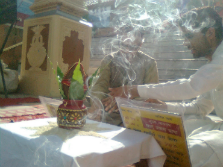
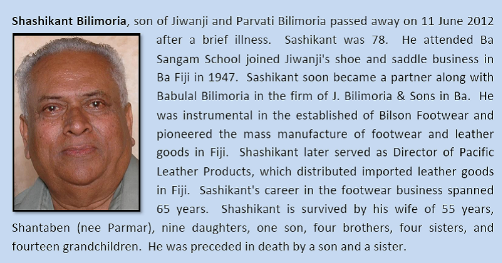
My close eldest cousin, eldest in line Shantilal above, (all cousins were brothers to me in
Tagore-like joint family before the rupture set us apart, and traumatized me.. first in a series
of abandonment syndrome). I believe funeral is tomorrow; please pray for smooth transition
and forgiveness
When I came to learn of the passing of Professor Hugh Silverman, I was so very shocked and much sorrowed. Hugh was, and remains, a close friend and mentor too. I worked with him at Stony Brook (SUNY) and on IAPL over several years, a project that involved reinforcing the inter-disciplinary/comparative/cross-cultural alongside a/theological and —even 'non-philosophy'— thrusts that American philosophy is just beginning to be open to (and followed closely in Australia and New Zealand and parts of Europe and Southern America). We last saw each other in Melbourne, July 2008, during the joint conferences of AAP (Australasian Association of Philosophy), IAPL, and ASACP (Australasian Society for Asian and Comparative Philosophy); it was a magnificent conference and Hugh's presence loomed large. Academic life for me will not be the same without the kind of leadership Hugh provided via IAPL and in other ways for me (he opened up numerous connections that he facilitated for me and many others indeed, and publication opportunities in at least two books series that he edited); but most of all he introduced students, graduates and visiting fellows to the burgeoning enterprise of working at the interface between Continental/European thinking and Asian/Comparative Philosophy with a conscious gaze from the erstwhile pursuits of philosophical theology and gender studies. Hugh and his wife, Gerda (as she is fondly called by all) exuded great generosity. On that freezing-cold eve of our first New Year in America, they had me and my late wife, Renuka, over for a fireside gathering with Stony Brook graduates and friends, whence we watched on a large TV screen the 'Big Apple' descent on Times Square, on a large screen. And he would only serve the best German beer, brewed apparently by his Boston father (a Silverman tradition of sorts). My akubra hat off to you, dear Hugh!
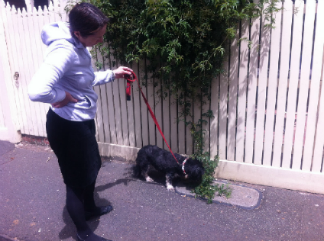
- Nina left a message on my mobile, it was not clear. I am on skype with her. Rasa is declining in health - though she seems to pluck up somedays. However, Megabyte, the close cat-mate (they became closest friends after Devi passed as Megabyte was very close with Devi), was put to sleep on my birthday (as I was celebrating in LA). It was always felt they would go together. Nina says she's put the vet on alert if Rasa really declines and the kidney ceases, etc. It could be in next couple of days or next 10 days: only Rasa knows (and the Spirits yonder waiting to receive). (Could we have the image of Rasa scanned where she looks like a Herculean goddess? We can circulate that later)
I did in a way say my *good-byes* when I was in Melbourne (to both Meg and Rasa). It would be wonderful if one, two, three, four of you could go and say your goodbyes on behalf of all from *our* side who loved Rasa (met Megabyte and Lucky in Noah's Ark), sprinkle some water on her tongue, do waving of arati lamp, circle an incense: Devi and Rasa were/are Avataars among the canine kind on good earth. Nina is quite open to this; she'd like Damyanthi to ring and make time for the visit (Friday evening after work could be fine).
Kaddish as it evolved at ritual for last rites for Devi (Sept 2009)
( also on video at: .http://purushbilimoria.blogspot.com/2009/10/latest-updated-edition-of-dog-devi.html;
snippets, clippings in previous page: Grief of Dog Face) (this is an edited transcript from the video, apologies to the latter-day disaffected, by no names).--------------
Berkeley Modern-Posts
FOUND DOG
Black Lab, white underbelly, curly tail
Seeking owner, howls at night
Well taken care of, strayed into
Spruce & Arch Streets, Cal-Berkeley
Call: Jerry O'Garcia 1-008-SUBALTERN
Will return by UPS-VET (F.O.B)
FOUND GOD
White male, black underbelly, hairy tale
Seeking disciples, hysterical by day
Kept unkempt, wondered into
Euclid & Cedar Avenues, North Berkeley
Call: Faristha O'Gibreal 1-008-OBO ONO
Will return by FedExp-SKY (C.O.D)
[circa 1995-6]
----------------------------------
Devi was an old, old, old, soul; been around many times before. I'm inclined to believe that she transcended up the hierarchies this last time and is free forever more... Love On, Devi... Love On..... [SPW]
------
September 19, 2009
Dear Professor Purushottama Bilimoria Ji,
Our family is shell shocked to know about the final sojourn of Devi. We were emotionally attached to both Devi and Rasa ever since you and Renuka Ji were narrating to us for more than a decade about their supra mammal nature akin to realized human souls . As Hindus we believe in the Doctrines of Karma and Rebirth and our family is confident that Devi will not have rebirth as she was associated with great souls such as Renuka Ji and you who have imparted all the positive spiritual energies to her. Devi would join Ms Renuka Ji who is blessing us some where from the heaven.
We pray in the Almighty for the safe passage of Devi and also pray in Him for strength and courage to be bestowed on to you for overcoming this melancholy.
In fact Ms Veena and Chidu told me over phone ( while I was returning from Badarinath) that on Thursday they were again watching videos and photos of Devi and Rasa and had all praise for the godly dogs nurtured by you so well. Ms Veena also told me that she wanted to enquire about Devi and Rasa when you had called up but restrained herself as your time was very precious and busy with academics as ever.
We pray here tomorrow for her final sojourn and peace.
With best regards,
Sridhar M. K.
Ms Veena Sridhar
Chidananda Sridhar
Bangalore, India.
Dear Purushottama,
I'm so sorry to hear the sad news about Devi. I remember so fondly what a warm little companion she was while I was at your house, lying around coughing, and what fun it was to run with her on the beach. She has indeed been a wonderful, sympathetic dog.
With sympathy,
Kathleen
Dear Purushottama,
Please accept my deep condolences at your loss. I remember with great pleasure my time in Melbourne and Venus Bay with the dogs and Devi’s affectionate and trusting nature. I remember in particular feeding her and Rasa and the genial look she gave me, as if to assert that all was well with the world.
I trust the quoted sentence from Derrida contains a typo and properly reads, “there shall be mourning.” That is what he publicly did on many occasions, notably at the death of his teacher, Levinas. ( see the touching memorial to him in Critical Inquiry). Mourning the dead is one of the most human and humane acts available to us.
In sorrow,
Puruzi, I was very saddened to received your news. Only two days ago I was walking with a friend and a silky dog very much like Devi, ran up past me mischievously, almost tangled in my feet, I looked at the dog smiled and thought to myself that is what a younger Devi would have looked like. Strangely she was on my mind that day. “There shall be no mourning”, I’m grateful for the loving cuddles and warmth I received. Thanks for letting me know. I will light a candle tomorrow and fare thee well……….
Love, xx P
I’ve been cleaning the house reminiscing. Devi, how much she loved you, how close to human she was. How full of mischief, just like you! I also know that despite the brave face of your very rational email, you would be hurting, deeply. A big warm hug to you where ever you are, x P
-------- Dear Purushottama,
What can one say when a loved one goes away. The grief and pain has to be borne and much as friends and family want they can only offer comfort with a hug or a kiss. You have to bear this on your own and hope that on moving forward you will find solace in love from other quarters. Thinking of you with affection and grief.
Babu and Dibi [Bangalore]
--------
I was so incredibly saddened to get your text about Devi... I knew when I was there this last time that I probably wouldn't see her again, so I had a private ritual with her before saying my final goodbyes. Feel me with you tomorrow as you have to bear yet another loss of a beloved, and know that my arms are wrapped tightly around you. Whisper in her ear that I am thankful for all the love she gave to me and ..., and most importantly all the love that she gave to you after Renuka's passing... she and Renuka will share some good laughs together again, I have no doubt. And please give my love to Nina as well, who is now dealing not only with the impending loss of her mom, but now Devi as well; so sad.
ahhh, you just texted me... was going to inquire how rest of your day going and how you feeling about everything. I'm at least glad to know that you are there for her passing; would have been awful if it happened next while while you were here. She wanted you to be part of her transition; I am sure of that... Renuka came to get her before you came here... I will be with you tomorrow... feel me holding you as you hold Devi in her last moments.
[Marin]
-------------
HAN NYA SHIN GYO
Kaddhish 1956 _Ginsberg
Strange now to think of you, gone
without corsets & eyes, while I
walk on the sunny pavement of
Greenwich Village.
Downtown Manhattan, clear
Winter noon, and I’ve been up
All night, talking, talking,
reading the Kaddish aloud,
listening to Ray Charles blues
shout blind on the phonograph
the rhythm the rhythm – and your
memory in my head three
years after – And read
Adonais’ last triumphant
stanza aloud – wept, realizing
how we suffer –
And how Death is that remedy all
Singers dream of, sing,
Remember, prophesy as in the
Hebrew Anthem, or the
Buddhist Nook of Answers –
And my own imagination of a
withered leaf – at dawn –
Dreaming back thru life, Your
Time – and mine accelerating
Toward Apocalypse,
the final moment – the flower
burning in the Day – and what
comes after…
(Allen Ginsberg, ‘Kaddish’ 1956)
Since time began
the dead alone know peace
Life is but melting snow
(Haiku by Nandai)
GYA TE GYA TE HA RA GYA TE HA RA SO GYA TE BO DHI SO WA KA
gone, gone, to the other shore gone, reach (go) enlightenment accomplish.
No Worries Mate Murray of Venus Bay, passed circa November 2011

Tagore from Gitanjali
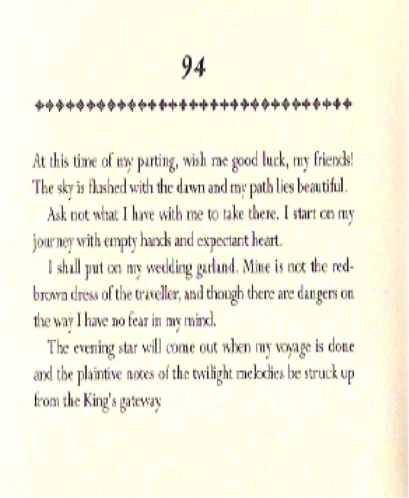
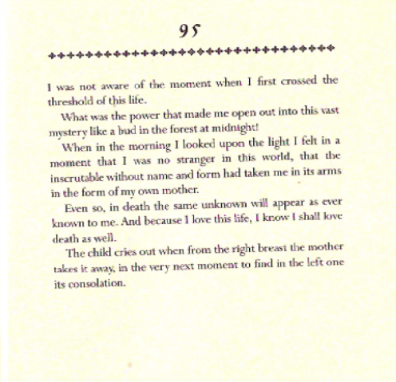
Crimson Horizons
The walls now melt in naked aloneness
like mirrors reflecting back sky-loads of pain,
ceilings above pelt down tears of rain, the clouds outside set ablaze in fire..
I too have seen mir/im/ages of such forebodes
in my diminished nights of infinite resignations;
these have haunted me across three continents,
and they still cometh in my unending dreamers.
[PB Feb 2012, Bellam Road, San Rafael waters]
===========Whistles of the Soul
'There night is day
and day is night';
why does the full-moon ray shine,
yet dimly, in day time,
and the sun eclipsed by Mar's mauve hues?
Two lonesome swans paddle on the still water,
no-else life in sight; even emptiness has flee-d;
'cos night is darker than darkness could imagine,
there is that, there is fire
next moment 'tis chillness of ice,
smokey trails carving their way
through chakras and pranic nadis;
is there an end in sight to the bardo descents
into the soul, past heart-mind & intellect?
'tis as if it's absent when reaching its sanctuary,
or the soul becomes a ball of splashing seaweeds
entangling colors of flora and weeping corals
in the seabed of endless time;
the hour-hand ticking losses.
[Feb 2012, Bridge over Marin County)
A New Dawn Spirals Back
A new dawn is struggling to break through
from beyond the horizon of clouds
and sett[l]ing stars
the upside down crescent moon vanishing in the bay,
Ashwins' rays ahead of the sun bring blessings
from beyond
where our beloveds have taken rest;
perhaps they whisper in our ears,
perhaps they sing to our souls
the joyous glories of the mysteries and
manifestations of the immensely Unknown;
it is now they who may pray for us
left alone in our worlds
and conventional perceptions
the eternal return of the sacred;
each shall march on
in their own time
to the shorelines of travelers
the horizons of dancing stars,
to the rhythm of spiraling spangles;
whistling of the kettle boiling tea,
baby deer peering through window
cat scratching on the forlorn pillow,
near too, rustlings of the soul awakening,
eternity now running out of time,
and our Godman out of divinity.
(PB, Feb 2012, Bridge Over Marin County)
.-----------------

images of spiralling spangles at shop-front window exhibition on Mission (between 5th and 3rd Streets, en route Amber Indian restaurant in San Francisco; taken March 9, 2012. (Permission being sought to reproduce here).
-----------------
--Within You and Without You
We were talking-about the love we all could share-
when we find it
To try our best to hold it there-
with our love
With our love-
we could save the world-
if they only knew.
Try to realize it's all within yourself
No-one else can make you change
And to see you're really only very small,
And life flows ON within you and without you.
We were talking-
about the love that's gone so cold and the people,
Who gain the world and lose their soul-
They don't know-
they can't see-are you one of them
When you've seen beyond yourself-\
then you may find, peace of mind,
s waiting there-
And the time will come when you see
we're all one, and life flows on within you and without you.
--George Harrison
|
Moonlight Mile |
|
|
When the wind blows and the rain feels cold with a head full of snow with a head full of snow In the window there's a face you know Don't the night pass slow Don't the night pass slow The sound of strangers sending nothing to my mind Just another mad mad day on the road I am just living to be lying by your side But I'm just about a moonlight mile on down the road Made a rag pile of my shiny clothes Gonna warm my bones, gonna warm my bones I got silence on my radio Let the air waves flow, let the air waves flow For I'm sleeping under strange strange skies Just another mad mad day on the road My dreams are fading down the railway line I'm just about a moonlight mile down the road.. I'm just about a moonlight mile on down the road on down the road, down the road. |
-------------
|
- Jagger/Richard |
The Poet Asks Forgiveness
BY FAY ZWICKY
Dead to the world I have failed you
Forgive me, traveller.
Thirsty, I was no fountain
Hungry, I was not bread
Tired, I was no pillow
Forgive my unwritten poems:
the many I have frozen with irony
the many I have trampled with anger
the many I have rejected in self-defence
the many I have ignored in fear
unaware, blind or fearful
I ignored them.
They clamoured everywhere
those unwritten poems.
They sought me out day and night
and I turned them away.
Forgive me the colours
they might have worn
Forgive me their eclipsed faces
They dared not venture from
the unwritten lines.
Under each inert hour of my silence
died a poem, unheeded
----------------------
Tagore's Grief.
[W]hen his school was barely one year old Tagore’s wife died. He now wrote his beautiful poems
about children called The Crescent Moon.
The years between 1903 and 1907 were the sad ones for the poet. There were many deaths in the
family. He lost his second daughter, Renuka, his father, his youngest son, Shami, one after another. But
Tagore did not lose heart and continued to write beautiful works, he was now drawn more and more to
his motherland and became a leader of the movement for national liberation. It was about this time that
Tagore wrote his Gitanjali in Bengali, and also the famous patriotic hymn, Jana Gana Mana.
When Tagore was fifty he had a great output to his credit and had made Bengali literature hum with
excitement and exploration.He was hailed as the national poet of Bengali and on Jan. 28, 1912, a
commemoration meeting was held in Calcutta, in connection with his Golden Jubilee, to pay homage to
him.
As an escape from this exhaustion Tagore started translating into English some of his own lyrics and in
1912 when he reached London, he had a whole collection of the translations in his hands. There he
came into contact with many British writers and thinkers, specially W. B. Yeats and the artist
Rothenstein who inspired him to publish English translation of Gitanjali (in 1912, with Yeats’
memorable introduction) which won for him the Nobel Prize
for Literature in 1913. Henceforth he was not merely the poet of Bengal, but the whole of the world.
After success of Gitanjali many volumes of translations either done by Tagore or by others under his
supervision and even some original writings in English were published. Tagore now toured widely
visiting the countries of East and West.
Tagore did not involve himself too intimately into the political currents in India but he maintained very
friendly relations with Gandhiji and Jawahar Lal Nehru. Gandhiji visited Shantiniketan in 1915 and
was greatly influenced by him. The British Government had bestowed a Knighthood on the poet in
1915, but the poet renounced it in protest against the massacre of Jallianwala Bagh. In 1930 when the
news of Gandhiji’s arrest reached Tagore, he was deeply distressed and called off the celebrations of
his seventieth birthday at once.
As the years passed, Tagore became more and more a legendary figure. In his flowing beard, and white
robes he looked rather a Rishi belonging to ancient India. Though Tagore was getting old and ill, till
his last he kept aloft the banner of faith in the future of mankind.
On the 7th of August, 1941 at the age of eighty in the old house at Jarosanki, he breathed his last. The
whole nation was plunged into grief and mourning. In Dr. Edward Thompson’s words, “Not a man
only but an age had made its way at last into history. He had summed up in himself a whole age in
which India had moved into a modern world.”
The Sublime Melancholia of Mourning
The Raven[1]
Ah, distinctly I remember it was in the bleak December,
And each separate dying ember wrought its ghost upon the floor. Eagerly I wished the morrow . . .
‘Prophet!’ said I, ‘thing of evil! - prophet still, if bird or devil!
By that Heaven that bends above us - by that God we both adore
Tell this soul with sorrow laden if, within the distant Aidenn,
It shall clasp a sainted maiden whom the angels named Lenore –
Clasp a rare and radiant maiden, whom the angels named Lenore?’
Quoth the raven, ‘Nevermore.’
‘Be that word our sign of parting, bird or fiend!’ I shrieked upstarting -
‘Get thee back into the tempest and the Night’s Plutonian shore!
Leave no black plume as a token of that lie thy soul hath spoken!
Leave my loneliness unbroken! - quit the bust above my door!
Edgar Allen Poe
[1] This sorely woody poem (excerpted here) describing Edgar Allen Poe’s melancholia at loss of his beloved Lenore, was first published in 1845.




